In its quest to chart a new course and equip the best graduating Muslim students in Nigeria with the skills they require to optimise the opportunities attainable with their degrees, a non-profit organisation, First Class Muslim Foundation (FCMF) on Sunday gathered eminent scholars and other stakeholders to a 1-day summit held at the Islamic Centre, University of Lagos.
No fewer than 79 First Class graduates between 2017-2019 academic sessions from different Universities in Nigeria, defied the heavy downpour to attend the summit, the first of its kind, with the theme; Pursuing Your Goal.
Why many first class graduates remain jobless – Prof Omoteso
The Pro-Chancellor and Dean of the College of Business, Law and Social Sciences at the University of Derby, United Kingdom, Professor Kamil Zakariyya’ Omoteso, while speaking on the theme, said, lack of employability and entrepreneurship skills are among the major reasons many first class graduates couldn’t secure jobs after graduation.
Muslim News’ findings revealed that, at the end of every academic calendar, several Nigerian institutions ranging from government to privately-run universities produced hundreds of first class graduates but many of them found it difficult to secure jobs years after graduation.
Prof Omoteso, who had earlier been honoured at a Breakfast Event by his colleagues at Radisson Blu Hotel, Ikeja, said many of the first class products are yet to be equipped with necessary tools that will make them succeed after graduation.
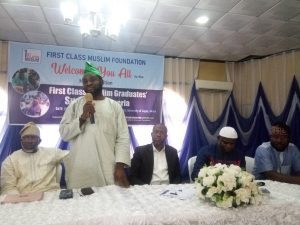
He said, “Some of the tools include short internship/placement during summer breaks and volunteering in relevant organisations. He also emphasised the need for institutions to integrate employability into their agenda.
These include supporting students on CV writing, crafting of their personal statements, preparing students for interviews/ assessment centre activities, etc. and providing Research assistantship opportunities for outstanding students. Institutions should also liaise with employers for life projects to which students can contribute, with dual-supervision.”
According to the former Director of Postgraduate Programmes in Accounting at De Montfort University, Leicester, “one of the key elements we are incorporating into academics in the West is graduate employability.
Read more on Prof Omoteso’s presentation, interview HERE:
Emotional intelligence, not first class will make you succeed at work – Hajia Balogun
The lead consultant at Habiba Balogun Consulting (HBC), Hajia Habibah Balogun, told the participants that emotional intelligence will make them succeed at work and not their first class.
Hajia Balogun said in her lecture, titled, “Emotional intelligence” that many students graduated with first class because of their IQ (intelligence quotient), but their first class is not what is going to make them succeed in the labour markets.
“What would help them succeed is people skills which comes under the umbrella of emotional intelligence,” she added.
According to the social entrepreneur, emotional intelligence is the ability to know yourself very well; ability to control your emotions; ability to have good relationship with other people; abd to show empathy and be self motivated.
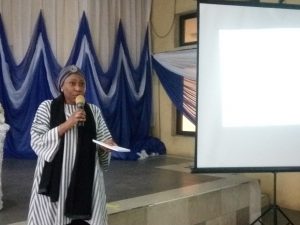
In a chat with Muslim News, she said, “I just wanted to educate them and show them the dilemmas they would face at their place of work and how they have to be aware of the differences between them and other people; different meanings people attach to what they say and how they look, different contexts they are going to find themselves — secular and Islamic, and how they must make decisions and comport themselves in such a way that their faith can enhance their work.
Read more from Hajia Balogun’s presentation, interview with Muslim News HERE
Too many Muslims lack emotional intelligence – Alhaji Obileye
Speaking on the topic, ‘Pursuing Your Goals’, Alhaji Lukman Obileye posited that there are too many Muslim graduates who lack emotional intelligence, saying, “one of the reasons they lack emotional intelligence is because aside religious books, they don’t read other books (particularly motivational ones).
Alhaji Obileye however noted that those who read religious books among them do not understand what they read.
He asked, “how many of you have read the Qur’an in the language you understand from beginning to the end in this lifetime?,” only few audience signified.
The Chief Executive officer, B.K.O. Capital, disclosed that he recently carried out a research whose findings revealed that no fewer than 60% of Muslim female undergraduates are seamstresses.
To substantiate his research findings, the guest speaker asked the female participants one after the other who among them was a seamstress, and quite interestingly, virtually all of them answered in the affirmative!
He said it’s not bad for Muslims to learn tailoring as undergraduates, adding that there are other numerous skills that will prepare them for a successful career.
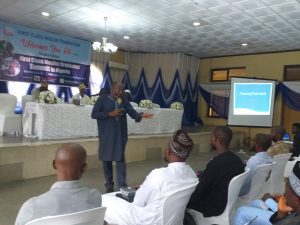
“It’s good to be able to make money as undergraduates but what’s so special about tailoring that made majority of our sisters, including the first class graduates develop interest in it? All our sisters can’t be seamstresses. They should look into other skills, such as programming or coding, or other skills that will prepare them for successful careers in the future.
What worked for me? – Prof Adedeji
Professor Adedeji Ahmed told the participants during his lecture, titled, ‘What worked for me’ that their first class is just one out of several tools needed to be successful in life, saying that they need to be tutored to acquire the other tools.
He said, “I see you know nothing, but by evaluation of your status today, you hold a first class. There are so many things you don’t know. Your academic qualification is just one. So, it is just as if in one out of several things you need to know, you excelled. Now pursue the remaining. You cannot pursue the remaining except you are taught.”
The Director General of Foresight Institute of Research and Translation (FIRAT), Ibadan, Nigeria also noted that putting Allah first in everything and thanking Him for every condition is the major factor that has worked for him to achieve success in life.

“There are many who worked the same way you worked, but landed with 0.1 less, so they could not catch up with a first class despite working very hard. Am I right?”, he asked the participants, and added that, “When you put in efforts, it will not always result in a first class category or qualification. I am sure you agree. Those things will always teach us to thank Allah. So, I always thank Allah for my condition. I always say to myself that He alone defines the affairs of man.”
He said the path that man will toe has a beginning and an end, adding, “Sometimes, he starts it from his path and succeeds all through. What will be at the end of the day is in Allah’s hand. We have many who have had first class, but could not succeed in life. When you categorize success, you won’t put such people there because Allah did not give them all other things given to people who have first class around the world.”
He also talked about how reading of the Noble Qur’an and other motivational books shaped his journey to success.
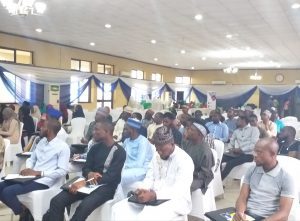
“All I wanted was becoming the best. So, reading was part of me, just like Alhaji Lukman said during his lecture. I started with five books daily. I am referring to what he said when he asked how much of the Qur’an have you read? Allah sent you a message, you did not understand and you kept reading it. You claim to be reading the Qur’an, but you do not understand it. Out of what I imbibed was the culture of reading religious scriptures every day in the language that I understood.”
Participants speak with Muslim News
‘When too much people concentrate on a craft, it doesn’t make it good…’ – Monsurat
Olunloye Monsurat, who graduated with a first5 Class degree from the department of Economics Education at the Osun State University in 2017 expressed satisfaction over the successful organisation of the Summit.
She said, “Today, I have learnt a lot. I am extremely happy to have participated in this Summit because I’m someone that likes to be pushed to do something. Hitherto, I didn’t have a mentor but with what I’ve heard today, I would make plans to get one. I realised that I am someone who likes to take initiative but only when pushed.
Olunloye, who recently applied for Masters in Economics Education at the University of Lagos corroborated with one of the speaker’s findings on the figures of Muslim ladies who have picked up interest in tailoring.
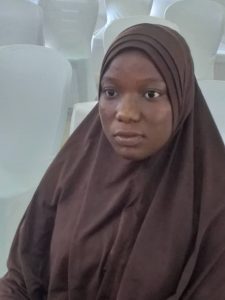
According to her, I totally agree. In fact it’s more than 60% because most people that weren’t tailors while we were in school are now fashion designers. It is making the job really competitive for people like us and not attractive like it used to be. I’ve been a seamstress since 2013 and did engage in tailoring while in school and during my service year in Ijebu Ode, Ogun state.
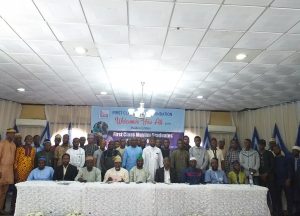
“Although, entrepreneurs would talk about branding but when too much people concentrating on one craft, it makes it less lucrative. Like the situation in Nigeria, because we are concentrated on an area, It has really affected us. So I was really moved when he said it was really true that most people are now fashion designers, caterers and the likes.”
She said the proliferation of too many people (males and females) in fashion designing has affected patronage greatly, adding that, “Almost all our customers are tailors now. You don’t get that load of customers anymore.
“One of the challenges l feel sisters are having is that they want to contribute to the quota of Muslims in all industries but because they are not given that avenue, that’s why most people think about being self employed. But it shouldn’t be the case. In my own case, my goal is to become a lecturer because I like talking to people. But people are having the resentment that when they study, they won’t get the job they want,” she added.
‘I was actually much more thrilled by the Emotional Intelligence session…’ – Olatunde
In a chat with Muslim News, AbdulQudus Olatunde, who finished from the University of Ilorin in 2017 where he studied Accounting thanked the First Class Graduates Foundation for organising the Summit.
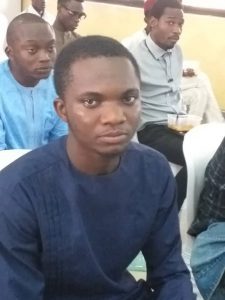
According to him, “Basically, I haven’t had much of experience after graduating. After graduating, I’ve worked with 2 companies Mobil Oil and Currently PwC Nigeria. But today, I’ve actually understood that the work place is different from the school environment.”
He said, “There are some skills we need to have in order to excel at our work places. For instance today, we were taught about Emotional Intelligence and I realised when I started working that it is actually more important than Intelligence Quotient which worked for us at the University, and of course, we must embrace how we relate with people and grooming ourselves to become better people.”
“The programme is very good. I was actually mostly thrilled by the Emotional Intelligence part because I know at work, I’m being evaluated based on five principles and I discovered that four of those principles are based on Emotional Intelligence which I was not aware of before. Of course, the goal setting aspect was important.”
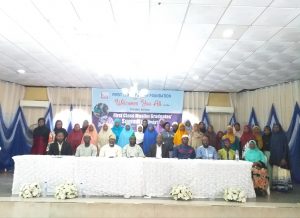
“In shaa Allah, I will try as much as possible to put what I’ve learnt into practice and of course there are many milestones to achieve and part of helping Islam also,” he added.
“…The summit has taught me self branding” – Iyiola
For Iyiola Oladunjoye, a First Class graduate of Microbiology, University of Ilorin, the Summit taught him the importance of self branding as one of the tools to achieve success.
In an interview with Muslim News, he averted that, “The lecturers emphasised on the importance of branding as individuals. We are meant to be unique and stand up for a goal. When people see us, they should know the kind of person we are. I mean, to be focused, diligent and having integrity. As Muslims and First Class graduates, we should be leaders that are willing to stand for something because someone who does not stand for something will fall for anything.”
He narrated how he was formerly rejected by his current place of work because a graduate with Chemistry was needed for the job.
According to him, “After my graduation in 2018, I served at Rivers State University, Port Harcourt as a Graduate Teaching Assistant where I combined administrative duties with academic duties in the department of Microbiology and I was assisting lecturers with their tasks”.
He said, “I was opportune to also teach students, laboratory courses, then, I worked closely with the Head of Microbiology department. During the course of my service year and due to the difficulty in getting employed in a government establishment, I started sending applications to several organisations; knowing my capabilities and the organisations I can fit in and work with (having deep knowledge about my course of study)”.

“Out of the branches of Microbiology, I have preference for Medical Microbiology and Environmental Microbiology. So I decided to check out job opportunities on Google and other professional sites like LinkedIn where I met a lot of people and professionals.I sent my CV and luckily, I met an organisation where I’m currently working”.
“Although, I resumed a month to my service year for the training with them here in Lagos but when I submitted my CV, I got rejected because they said they needed someone with Chemistry. Towards the completion of my service year, they called for an interview which I attended and I’m currently serving there as an Environmental Microbiologist because it’s an environmental biology consultancy company. That’s my experience so far,” he added.
Why we designed a 1-day Summit – Director
The Executive Director of the Foundation, Mr. Abolore Shobayo, was full of excitement on the success of the programme as he thanked the resource persons and participants who attended the Summit.
Speaking on the goal behind the First Class Muslim Graduates’ Summit, Mr Shobayo said, “We realised that many of them get lost in transit in the society. Having a First Class degree isn’t enough, the same way talent isn’t enough.
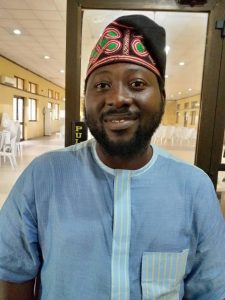
“We designed this summit as a mentorship and leadership training programme for First Class graduates to enable them chart a new course for themselves. It will also encourage them to become better persons in life. That’s why we usually discuss issues like goal setting, creative thinking and core competencies,” he added.
Mr Abolore said that the Summit was the first of its kind, noting that, “We have done the series thrice consecutively. In 2017, we trained 17 First Class graduates. In 2018, 19 First Class graduates attended, making a total of 36 Muslim First Class graduates. For those years, we organised a 3-day residential training programme.
“But this is the maiden edition of the Summit itself. This year, when we made the call for 30 participants, we received over 328. After picking the ones we selected for the programme, we decided to expand it by accommodating more First Class graduates. However, it was just a day, instead of three days like in previous years”.
“We had 90 confirmed participants that were billed to attend the summit but due to the heavy rains of today, we had 75 in attendance,” he added.
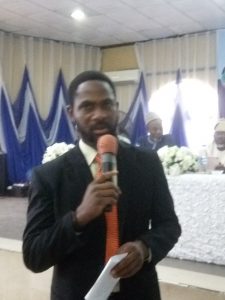
He called on Muslim individuals to donate for the continuity of the programme, adding, “We also want people to identify Muslims who have done well in their fields to come give speeches to our participants. For us it is more about service to the ummah.”
The M-First Summit was the initiative of FCMF, aimed at preparing Muslim youth in both academic institutions and the industry for excellence, which underscores Islam’s philosophy that Muslims should distinguish themselves with merit in all their endeavours.
– Story, interviews by Rasheed Abubakar
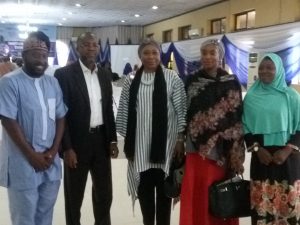
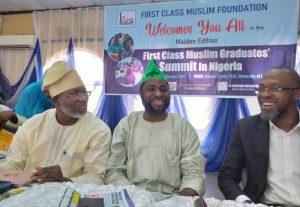


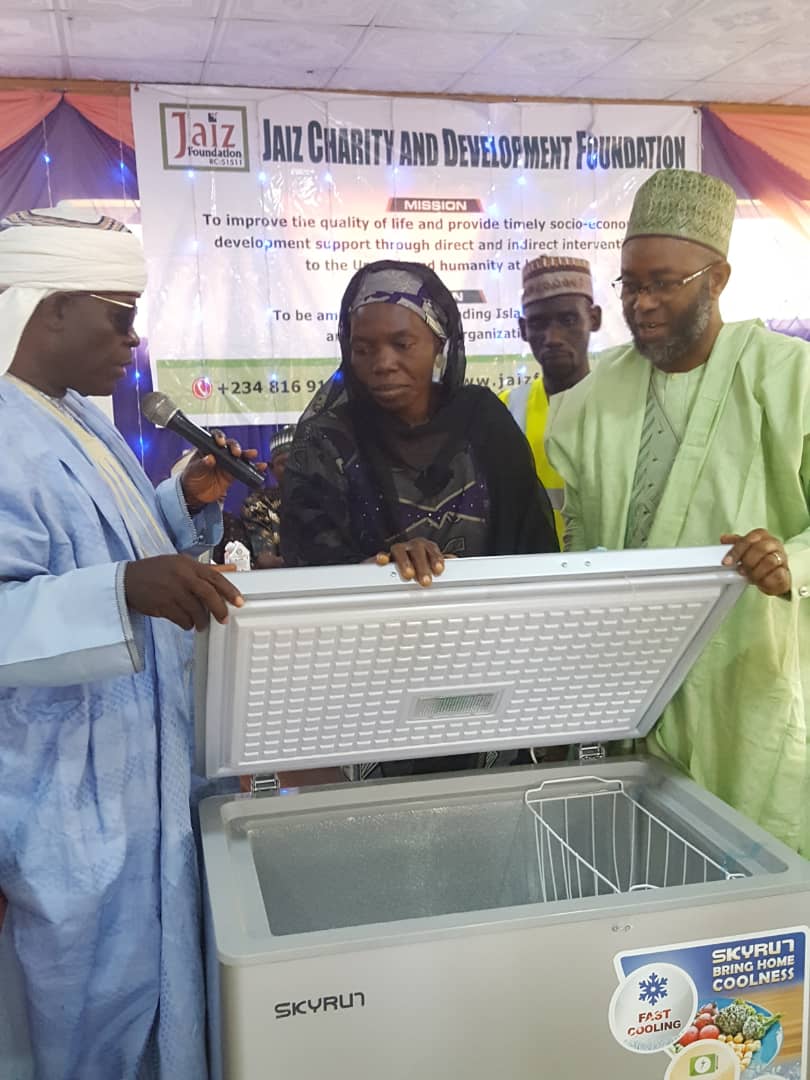

Jazakumllahu khayran,this is really an educating, inspiring and motivating piece,mere reading this alone I’ve really learnt a lot. May Allah continue to increase the organizers of this program in knowledge and sustenance and may He continue to strengthen them to do more of the good work. Aameen